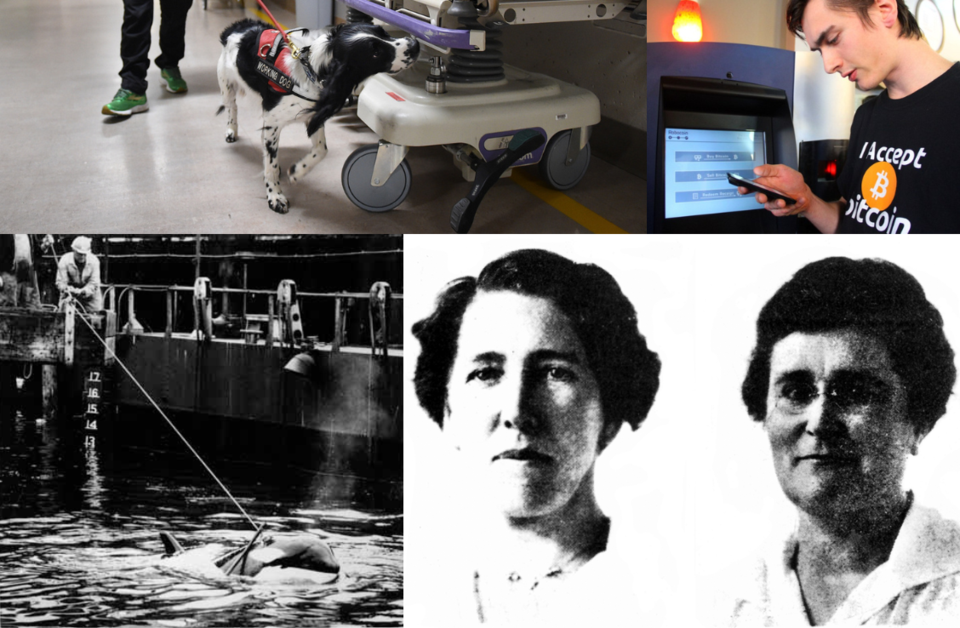Vancouver's often considered a leader in Canada, with many firsts or seconds happening here.
And this is the second time we're writing this; last time included the first Canadian gas station, first artificial hockey rink in the country, and the first Starbucks outside of the US.
This time we've got more firsts Â鶹´«Ã½Ó³»can claim, both in Canada and the world.
1. The world's first Bitcoin ATM
Nowadays cryptocurrencies are everywhere, but a decade ago they were still making their mark in the world. In a Waves coffee shop downtown, an ATM was unveiled on Oct. 29, 2013 with the unique ability to take Canadian cash, convert it to Bitcoin, and deposit in a person's cryptocurrency wallet.
At the time one Bitcoin was worth around $212.
While orcas have long lived alongside humans, Moby Doll was the first to live after being captured.
Moby Doll was captured in 1964 near Saturna Island. He was actually supposed to be killed so a sculptor could create an accurate replica for the aquarium; at the time orcas were disliked and considered vermin by many locals.
Instead, after the young orca (perhaps only five years old) was hit by a harpoon he was kept afloat by his pod so he could breathe; this eventually led to the decision to keep Moby Doll alive, at the aquarium.
Almost two months after being captured, the aquarium unveiled the small orca, but only for a day. Moby Doll, who was initially misgendered, was essential to early research on orcas.
He died on Oct. 9, 1964.
Angus the English springer spaniel was a worldwide sensation a few years ago. The young dog was the only "the only canine hospital employee in the world trained to sniff out the notorious Clostridium difficile," according to the British newspaper The Guardian.
He was trained after a local woman nearly died due to a bacterial infection by the superbug. Her husband, a nurse, had read about another dog who had been trained to detect the same superbug.
The woman, a dog trainer, decided to take on the challenge and went further. She and her puppy, Angus, became .
After being taken on a tour of the drug scene in Vancouver's Chinatown by anti-opium Chinese activists, then-Deputy Minister of Labour William Lyon Mackenzie King went back to Ottawa and drafted new legislation banning the sale of opium for non-medicinal uses.
In 1908 it came into effect, and in September of that year those laws were used for the first time when police raided an opium den and found two women (May Doyle and Nell Robertson). The owner, a man named Chan Yuen, was charged and convicted.
Lurancy Harris and Minnie Millar were hired by the Â鶹´«Ã½Ó³»Police Department in 1912, before they were even allowed to vote. At the time they weren't given uniforms or guns, and were sworn in at the lowest rank possible, fourth-class constables.
Harris went on to , spending more than 20 years with the force and achieving the rank of Inspector. Her house still stands in East Vancouver.




